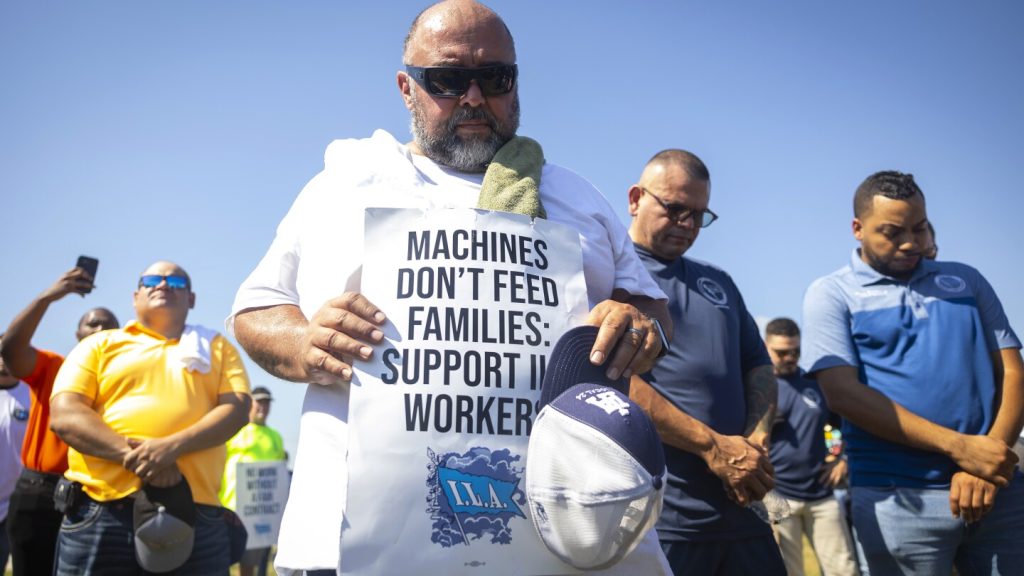A massive port workers’ strike that has closed down all major dockyards along the Eastern seaboard and Gulf coast in the U.S. is shedding light on the fear held by many workers that they will eventually be replaced by machines. The International Longshoremen’s Association representing the 45,000 dock workers demands a ban on the automation of gates, cranes, and container-moving trucks in their ports, along with substantial pay raises. However, the tension between workers and management regarding automation has been ongoing since the Industrial Revolution, and with the increasing use of artificial intelligence, the threat to jobs is expanding.
While this is not the first time that port workers have pushed back against automation, the introduction of machinery on the West Coast in 1960 led to negotiations that protected workers’ job security and pay rates. Harry Bridges, who led the union at the time, recognized the need to safeguard workers in the face of increasing automation. However, the rise of machines in ports has resulted in a decline in union membership over the years, similar to what happened in the coal industry. Labor agreements negotiated by union leaders like John Lewis aimed to protect existing workers but resulted in fewer hires and a shrinking workforce over time.
Some dockyards outside the U.S., such as those in Dubai, Singapore, and Rotterdam, are highly automated and efficient, posing a competitive threat to U.S. ports. Mexico is also constructing an automated port that could potentially impact U.S. workers. Unions and employers can protect workers by negotiating for guaranteed employment protection or providing retraining programs for workers whose jobs may become obsolete due to automation. While some jobs face a higher risk of automation, AI is increasingly threatening high-skilled roles as well. Companies that embrace artificial intelligence may experience productivity gains that lead to profitability, enabling them to hire more workers.
Unions, recognizing the risks posed by automation and AI, have been proactive in negotiating protections for workers in various industries. Video game performers and Hollywood screenwriters have successfully negotiated agreements to safeguard against exploitative uses of artificial intelligence. The growing use of AI tools like ChatGPT, which can perform tasks such as writing essays and computer code, has led to concerns about job displacement in industries ranging from law firms to creative fields. The uncertainty surrounding the impact of automation on various job sectors highlights the importance of ensuring that workers are protected and provided with opportunities for retraining and upskilling in the face of technological advancements.


